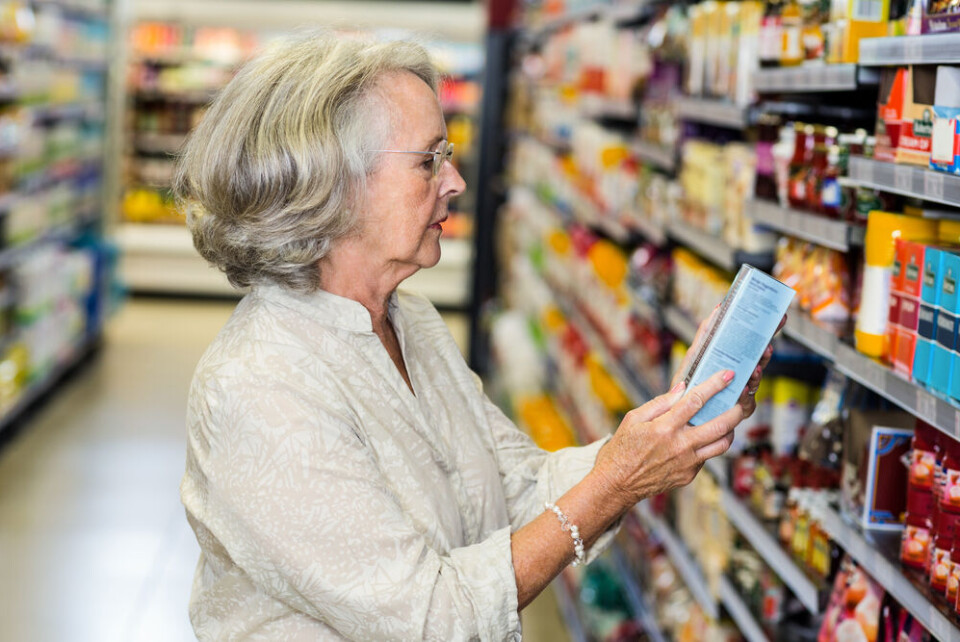-
Trump calls for Marine Le Pen to be freed (but she is not in prison)
US president said her embezzlement court case was a ‘witch hunt’
-
France’s €3 book delivery fee challenged in EU court by Amazon
Online retailer said measure is protectionist and ‘in breach of EU laws’
-
Allergies: How to know pollen levels in your commune of France
Interactive online maps can track and predict how pollen is changing in the air
Sunflower oil replacement in France: What if I have allergies?
The French government has authorised manufacturers to change food recipes without immediately changing the labels – but allergens will be highlighted straightaway

A shortage of sunflower oil due to the war in Ukraine means that some recipes for food products are set to change in France without the labels being adjusted immediately - but what if you are allergic?
What is the situation?
The government has authorised manufacturers to replace sunflower oil in their recipes with alternatives due to a shortage of the oil caused by the war in Ukraine.
These replacements are likely to include rapeseed oil, palm oil, coconut oil, or soya lecithin.
Read more: Sunflower oil shortage prompts recipe changes to shop foods in France
The authorisation does not require manufacturers to change the labels on the packaging as a result, for six months maximum. This is because the industry has said that entirely new labels with precise details of ingredient changes can take up to six months to create and roll out.
After this, labels must reflect the new oil and any other recipe changes on the packaging.
Manufacturers must highlight a change in recipe after two months (without necessarily detailing which ingredient has changed).
This means that in many cases, goods such as crisps, biscuits, margarine, cakes and sauces sold in France may have a different recipe without it being shown on the label.
This may be alarming for consumers with allergies, who are used to checking the labels on every product for allergens, or those who are used to buying products they know to be safe.
Will new allergens be highlighted?
Yes. Rest assured: the new rules state that if any recipe changes could have a negative impact on health, or introduce any new allergens into the product, this must be highlighted with a clear sticker immediately.
Allergy prevention group l’Association française pour la prévention des allergies (Afpral) said: “Manufacturers must use an appropriate method (for example, a sticker) to indicate explicitly on the product any changes to the recipe.”
How will I know when shopping?
Supermarkets and shops must also make any such product changes clear at the point of sale, including on posters or stickers in the main aisles concerned, at the entrance, and at tills, where appropriate.
Shops will need to highlight the products whose recipes have been changed, and make it clear to shoppers exactly how they can tell which items are concerned.
Consumers can also check for themselves which products and brands are affected, via a database on the website of French consumer and anti-fraud agency, the DGCCRF.
The DGCCRF is responsible for ensuring that companies adhere to the rules for the six months, highlight a recipe change after two months, and have correct labelling after the six-month grace period.
A committee at the Economy Ministry is set to meet every two weeks to monitor the implementation of the measures and adapt them if needed.
The rules also state that packaging must immediately highlight if certain claims are no longer true because of the new recipe, such as “100% organic” or “no palm oil”.
What products are affected by the change?
The Economy Ministry has warned that hundreds, if not thousands, of products may be affected, including:
- Fried goods such as crisps or fries
- Breadcrumbed items
- Margarine, pastes, and spreads
- Sauces
- Chocolate and biscuit products that use sunflower oil in the form of lecithin
Matthieu Pasquio, from the Coopération agricole, told La Dépêche that in the "majority of cases" the changes in recipes would be minor, and would present "no risk to consumer health", citing the replacement of sunflower oil by rapeseed oil, for example.
Related articles
Price of toilet paper to rise significantly, says boss of E. Leclerc
Ukraine crisis will push up petrol prices in France by 10c a litre
Ukraine war has rocked the balance of our continent, says Macron
























